You’ll regret skipping these if something goes wrong.

There’s something about the final minutes before leaving a hotel room that makes people forget their common sense. Maybe it’s the rush to catch a flight, or the excitement of heading to the next adventure—but skipping a few small steps can create big headaches. Most travelers don’t even realize the risks they’re taking until they’re long gone and scrambling to recover what they left behind or deal with the fallout of a careless mistake.
Taking a few extra minutes before walking out the door can save you money, time, and major frustration. These aren’t fussy or paranoid habits—they’re practical, proven steps that seasoned travelers swear by. If you’ve ever lost a charger, left behind your passport, or arrived home only to realize your favorite shirt is still draped over the bathroom door, you know the feeling. These 12 simple actions can help you leave your room smart and stress-free every single time.
1. Check every outlet and unplug your devices.
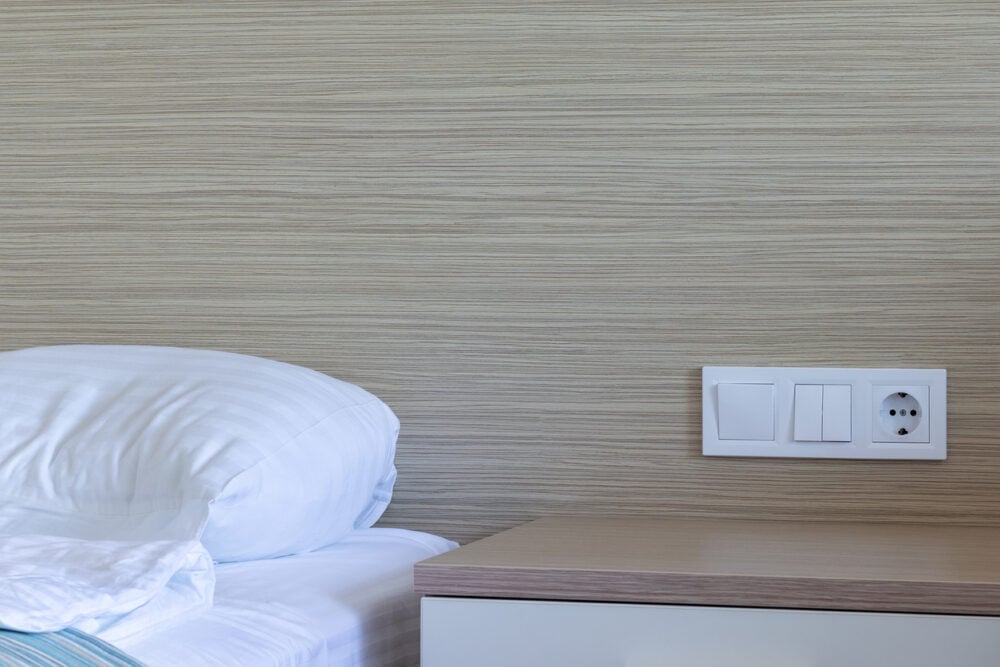
You’d be surprised how many people leave chargers, curling irons, or camera batteries plugged in behind furniture. Hotel outlets aren’t always in obvious spots—some are behind the nightstand or tucked low beneath a desk, according to writers at ASA. Take a moment to walk the room, phone flashlight in hand if needed, and scan each outlet. Unplug everything, even if it’s something you don’t plan to take. Leaving electronics behind is a surefire way to rack up replacement costs and ruin a smooth departure.
It’s also a safety precaution. Unplugging devices helps prevent electrical issues, especially if something malfunctions after you leave. Hotels are responsible for many things, but they’re not babysitters for overheating appliances. It takes less than a minute, but that quick walk-through could save you the trouble of tracking down a hotel manager in another country to recover your expensive hair straightener or laptop cord.
2. Do a full sweep of every drawer and shelf.
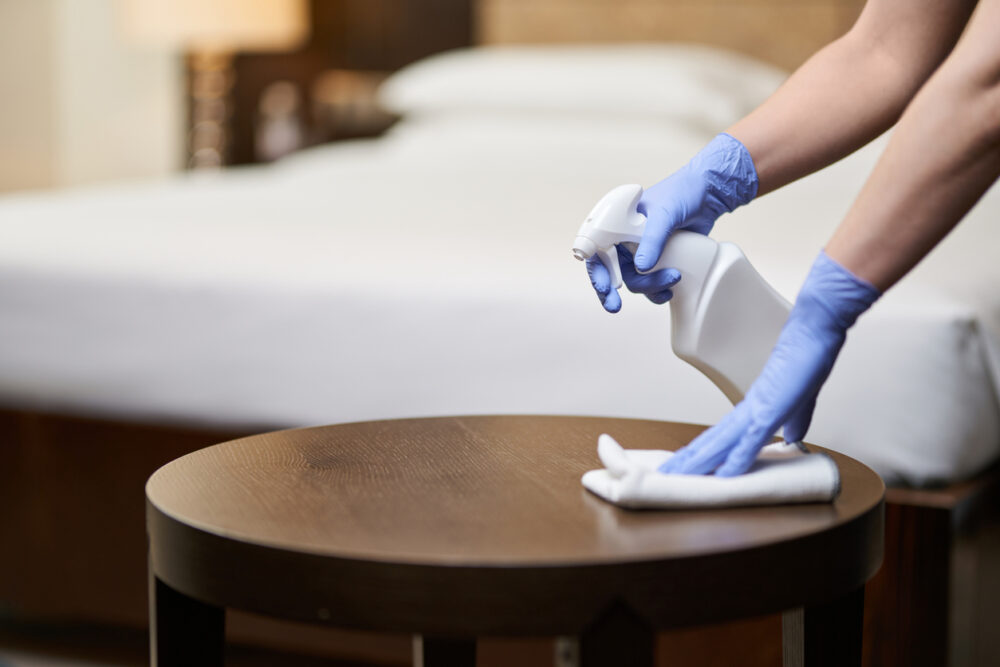
Most travelers forget the same kinds of items: socks in the nightstand, belts in the closet, and books or gadgets in those random drawers under the TV, as mentioned by Giacomo Piva at Radical Storage. Even if you didn’t unpack much, it’s worth doing a systematic check of every storage space. Open every drawer, lift the lid of any storage bench or trunk, and glance inside the safe. If you rushed to pack or repacked mid-stay, your belongings could be scattered in more places than you think.
Make it a ritual before checking out. Start in one corner of the room and work your way around, top to bottom. You’ll often find something small you completely forgot about, like a charging cable or an accessory tucked into a robe pocket. It’s a low-effort habit that can spare you the disappointment of realizing your favorite sunglasses are now a permanent fixture in Room 402.
3. Look behind curtains and under the bed.

Stray items love to hide in weird places, and the hotel room is full of them, as stated by Camila Pérez B. at Explore. That sock that fell while you were changing? Probably under the bed. Your travel pillow that slid off the windowsill? It’s likely wedged behind the curtain. A quick visual check behind drapes and a peek beneath the bed frame can rescue more than just your missing belongings—they also ensure you’re not leaving behind a mess or something embarrassing.
Even if you think you’ve kept everything tidy, items slip and scatter without you noticing. This is especially true if you’ve been living out of a suitcase, tossing clothes onto furniture, or charging things on the windowsill. Take thirty seconds to get down low and look. You might be shocked by how often people forget entire articles of clothing that were just out of sight.
4. Double-check the bathroom and shower.

Bathrooms are where the most expensive and essential items get left behind. Razors, skincare products, toothbrushes, prescription meds—they all tend to get tucked away on counters, in drawers, or on shower shelves. Wet items like shampoo bottles or loofahs are particularly easy to forget, especially if they blend in with the hotel’s own toiletries. And if you’ve hung clothes or a towel to dry, there’s a good chance one’s still there.
Make your bathroom check thorough. Open all drawers, check the shower floor and corners, and lift any towels that might be hiding things. Look behind the bathroom door too—clothing and towels get draped there and missed constantly. Leaving behind essentials can really mess with your travel plans, especially if you’re on your way to a remote destination or tight itinerary with no time to replace what’s gone.
5. Scan the safe and don’t forget the code.
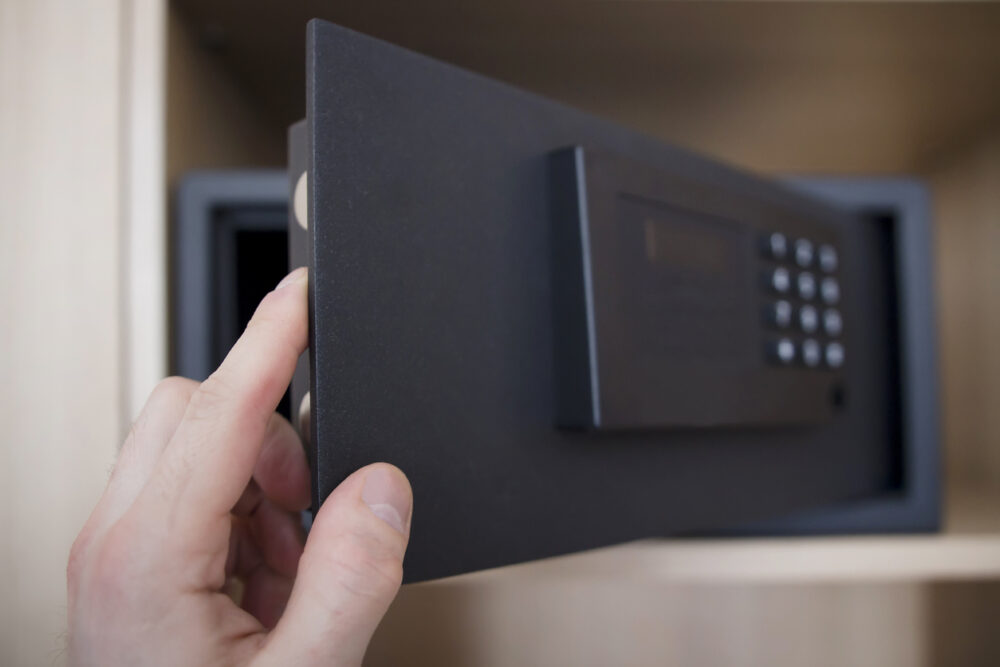
It’s ironic how the safest place in the room is the easiest to forget. People stash passports, laptops, money, or jewelry in the safe—then walk out without them. Since many safes are out of direct view (like inside a closet or under a shelf), they don’t stand out when you’re scanning the room. Worse, if you forget the code you set, you’ll need hotel staff to unlock it after you’ve already left.
Always make a habit of opening the safe first during your final room check. Remove everything and keep it visible while you pack. If you’re prone to distraction, leave the safe door open as a reminder once it’s empty. And never rely on memory alone for the combination—keep a note stored in your phone until you’ve successfully checked out. Recovering items from a hotel safe post-checkout is a hassle you can easily avoid.
6. Pack dirty laundry in a designated bag.
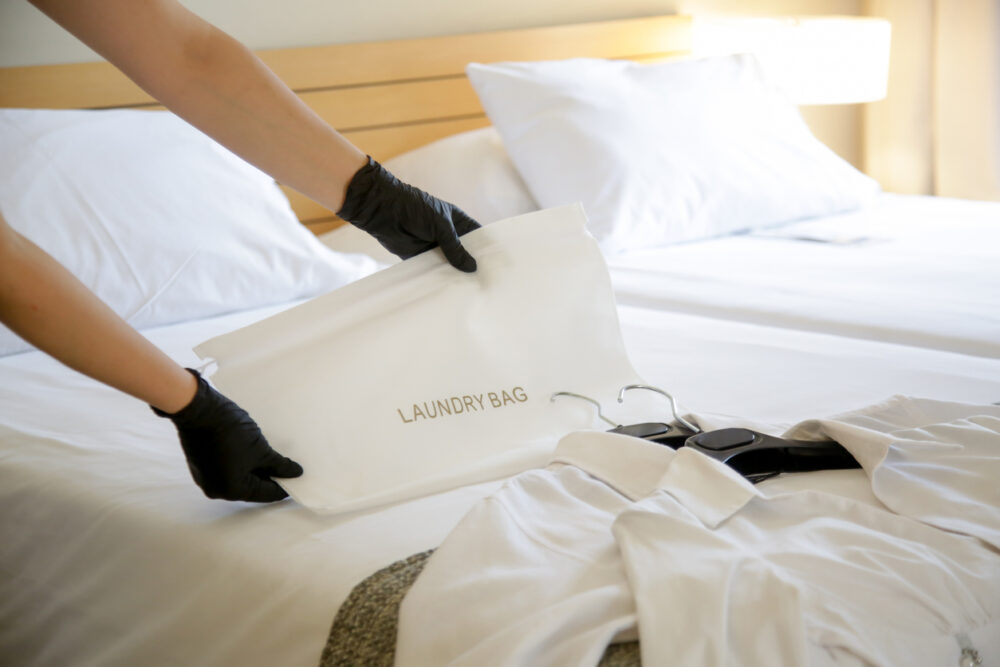
Dirty laundry has a way of camouflaging itself with hotel linens. If you’ve been tossing used clothes on a chair or at the bottom of the closet, you’re basically inviting confusion and loss. Housekeeping might scoop up your t-shirt thinking it’s one of the hotel’s towels, or your socks might be hiding under the bed skirt. Having a dedicated laundry bag helps corral everything and makes packing easier and faster.
It also saves you from having to sniff or inspect every piece to figure out if it’s clean. A compact, zip-up laundry bag is ideal, especially if it’s brightly colored or labeled. Keep it in the same spot each trip, so when it’s time to go, you know exactly where your worn clothes are. You’ll avoid missing pieces and get a better handle on laundry once you’re back home or at your next destination.
7. Snap photos of the room before you leave.

A few quick photos of the room, especially around the bed, desk, and bathroom, can save you serious stress. If you later realize something’s missing, those photos might help jog your memory or show exactly where you last left it. This is especially handy in disputes—if the hotel claims the room was left messy or an item wasn’t there, your photos can serve as simple evidence of your side.
It’s not about being suspicious—it’s about being smart. A three-second photo of the empty safe, the tidy bathroom, and the unplugged electronics gives you peace of mind and a digital record. You don’t need to overdo it, just snap a few wide shots of key areas. It’s one of those small habits that comes in handy more often than you’d expect, especially when staying in unfamiliar places or dealing with lost-and-found situations.
8. Review your bill and check for surprise charges.

Before you check out, take a few minutes to review your final bill. Mistakes happen—minibar charges for items you didn’t use, phantom room service fees, or unexpected resort charges can sneak in. Once you leave, disputing these charges gets a lot harder. Spotting them while you’re still at the front desk makes resolving them quick and painless.
Don’t just glance at the total. Look line by line and confirm it matches your actual activity. Ask the front desk to explain anything unclear or to remove errors on the spot. Even better, request a printout if possible, or have a digital copy emailed for your records. You worked hard to plan your trip and budget accordingly—don’t let small billing errors chip away at your wallet after the fun’s over.
9. Turn off all lights and adjust the thermostat.
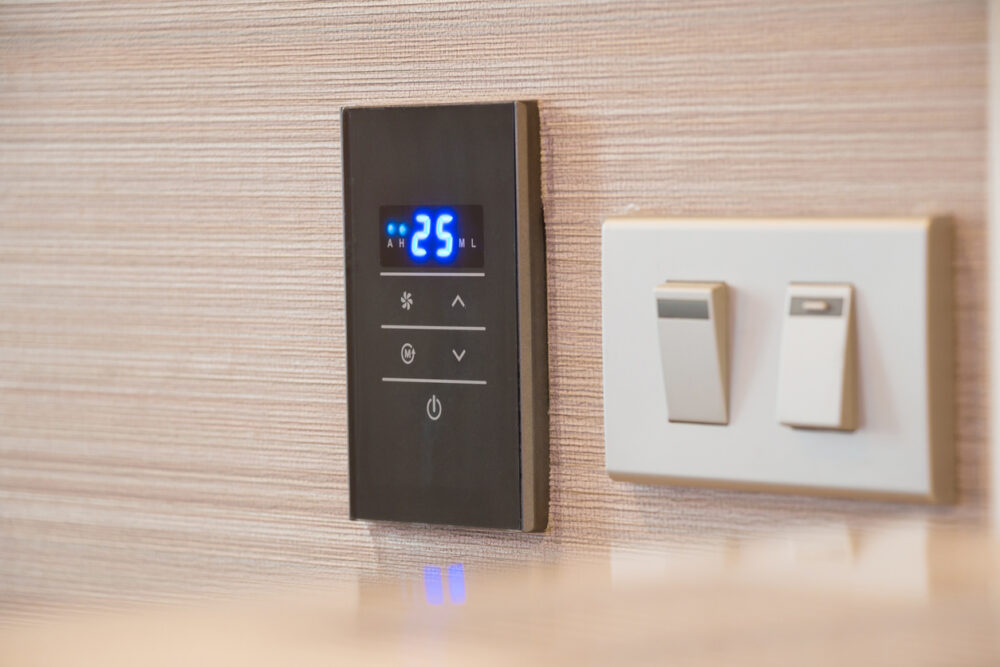
Being a thoughtful guest doesn’t just feel good—it can help the environment and ensure better service for everyone. Before walking out, switch off all the lights and return the thermostat to a neutral setting. This helps reduce energy waste and is appreciated by housekeeping and hotel staff. It also prevents a room from overheating or freezing before the next guest checks in.
This small courtesy also makes you less forgetful. Walking the room to switch off lights gives you another pass to scan your belongings. You’ll catch something in the corner of your eye—maybe an item on the floor or something that fell behind a chair. It’s not just eco-conscious; it’s practical. Plus, hotels notice guests who treat the space with care, and that can lead to perks on your next stay.
10. Confirm your transportation or next move.
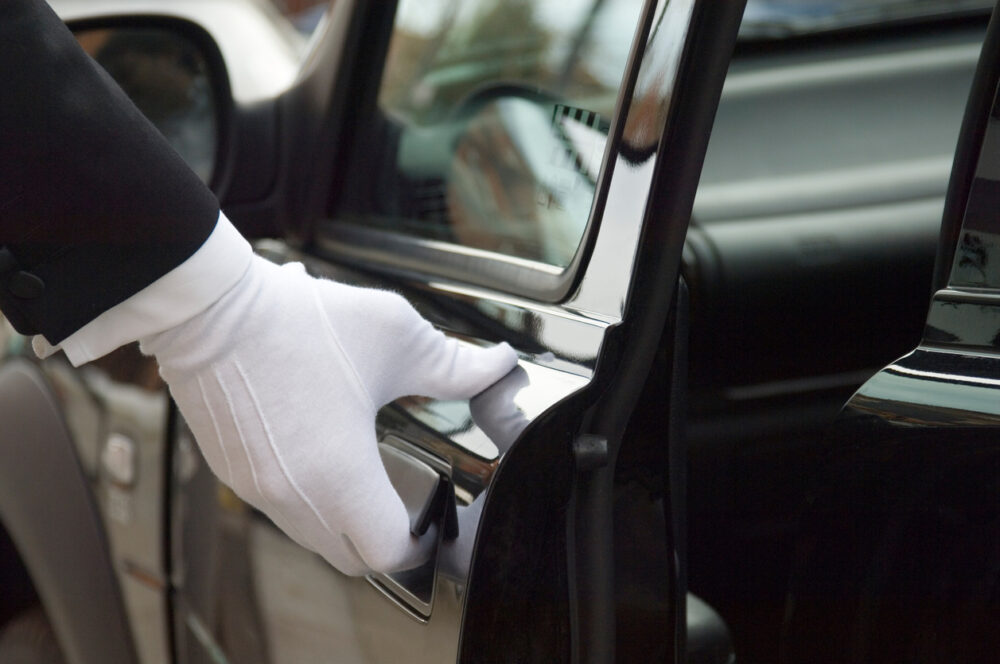
So many travelers miss flights or scramble at the curb because they didn’t confirm transportation until the last second. Before leaving the room, check your ride status—whether it’s a shuttle, rideshare, or car service. Double-check pickup times, addresses, and app updates. If you’re driving, confirm your route and that you haven’t left any garage tickets or keys in the room.
It’s also the best time to check flight status, gate changes, or train schedules. Doing it in the calm of your room is smarter than rushing through it in a noisy lobby or during a bumpy cab ride. A few taps on your phone can spare you a mountain of stress. You’ll walk out the door with confidence instead of chaos, and that sets the tone for the rest of your travel day.
11. Take one last slow walk around the room.
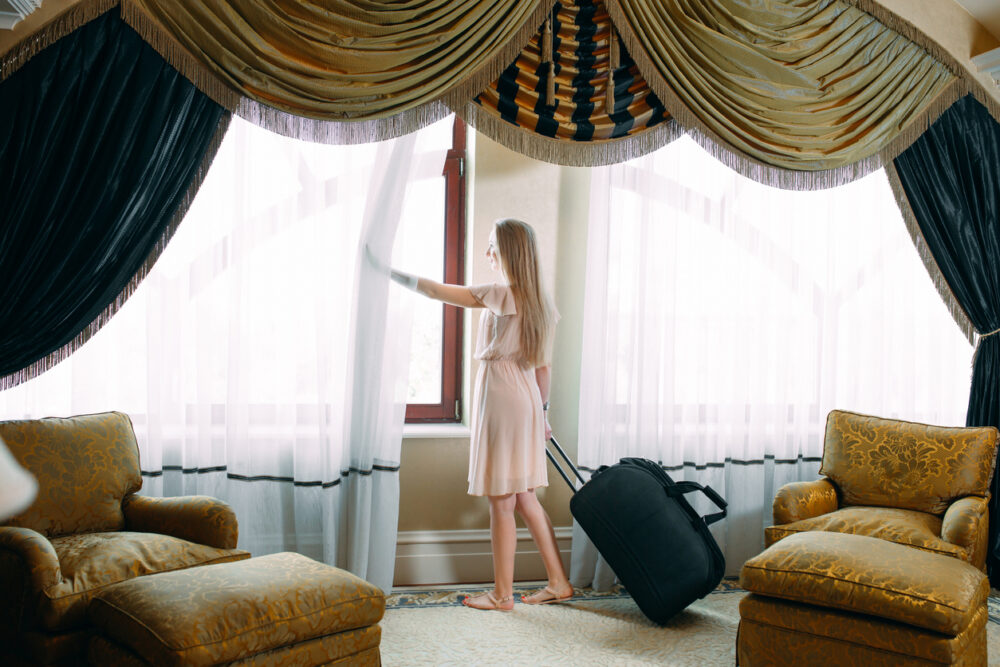
This is the single best habit a traveler can form. A slow, deliberate walk through every part of the room often reveals something you’d completely missed. Instead of scanning with your eyes, physically walk to each area—the bed, the desk, the closet, the bathroom. Touch or move items as you go. You’ll find a charger tucked behind a pillow or jewelry that rolled under a table leg.
Think of it like saying goodbye to the room. It’s your final chance to catch anything odd, out of place, or forgotten. Doing this slowly makes a difference—rushing guarantees you’ll overlook something. Make it your travel ritual. It signals your brain to stop and double-check before the transition begins. It’s also oddly satisfying to leave a room knowing you were thorough, not scattered and rushed.
12. Leave a tip and a thank-you note for housekeeping.
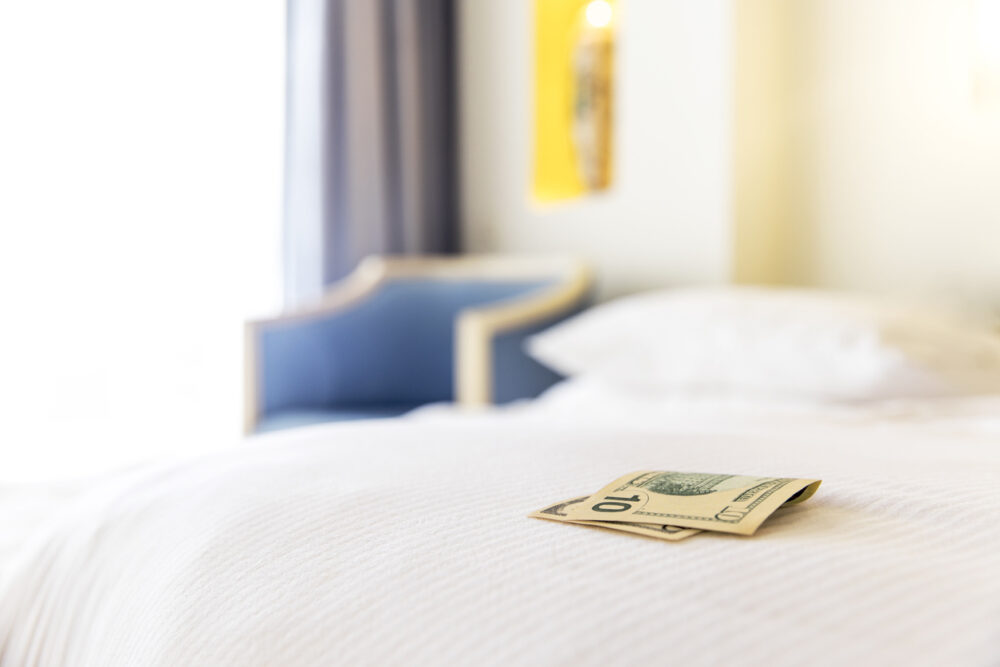
Housekeeping often gets overlooked, yet they’re the ones making sure your room is clean, safe, and stocked every day. Leaving a small tip and a quick thank-you note isn’t just kind—it’s a sign of respect. If the staff went above and beyond, a little recognition goes a long way. It takes less than a minute to jot down a kind word and tuck a few bills under the pillow or on the desk.
Some travelers think it’s optional, but in many cultures and cities, it’s expected—and deeply appreciated. Even if your stay was short or uneventful, showing gratitude fosters a better relationship with the hotel. And if you’re returning or have loyalty status, staff may remember you for it. Good travel habits include generosity and appreciation, not just efficiency. Ending your stay with kindness creates good travel karma for the journey ahead.
